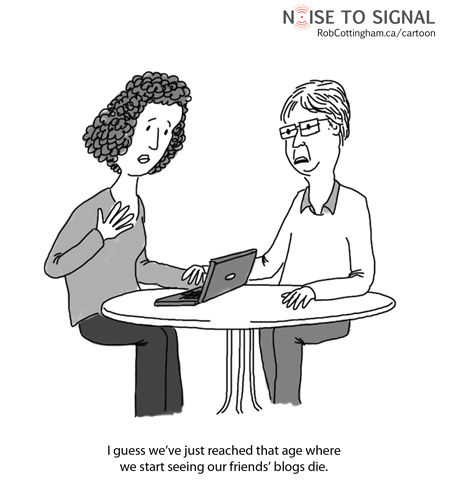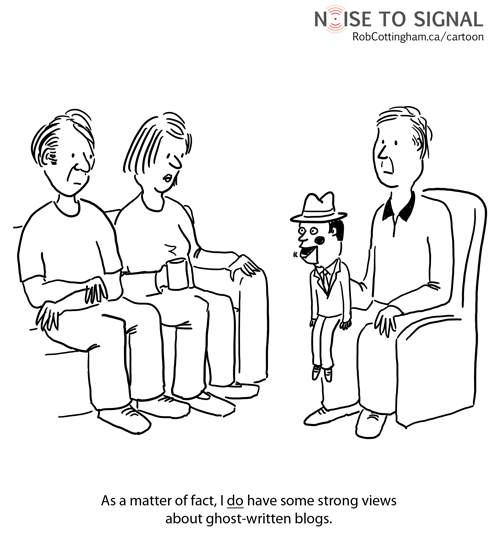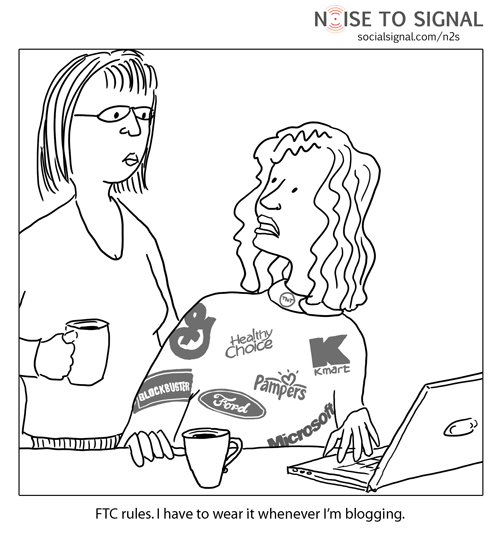(cartoon also posted on Blogworld)
The debate over whether CEOs and other prominent folks should hire ghostwriters to blog for them is a thorny one.
On the one hand, blogging culture is conversational and personal; we assume we’re having a discussion with the real person, and not with an intermediary.
On the other hand, intermediaries are the rule, not the exception, when it comes to VIPs on nearly every other communications channel. Op-ed pieces and letters to the editor that bear their names are usually drafted by PR or legal departments. Underlings draft correspondence for senior executives, and then run it through signature machines (which, incidentally, are amazing to watch in action, in a steampunk kind of way). Speechwriters – you get the picture.
I suspect that if they could get away with it, a lot of executives would delegate things like quarterly earnings conference calls. (“You! Yeah, you – the guy who was imitating Steve Ballmer at last year’s Christmas party. How’d you like to try doing that again?”)
Back on that first hand, though, is the argument that blogs and other social media aren’t just any business communications channel. They’re personal. And if you want to build a relationship of trust, then you’ll need a level of both personal connection and transparency.
Which is why I think there’s a lot to say for Shel Holtz’s suggested compromise (which he wrote as someone who opposes ghost-written blogs, but acknowledges they may be inevitable):
And if a business leader ultimately does opt to have someone else handle the writing of the blog, he should disclose it. What’s the harm in a statement like this on an executive blog: “Welcome to my blog. Several times each week, I articulate my thoughts to Mary Jones, who runs communications for the company, and she posts them here ensuring that I make the points I want to make. But rest assured, while Mary makes me sound better, the messages you read are mine; they come from my heart and I read all the comments myself.”
Maybe we’ll start hearing the same thing in other channels. Such as speeches: “Before I begin, in the interests of full disclosure, I talked to my director of communications for about four minutes about this speech, and the broad structure. I understand it went through eighteen revisions, twelve of them pointless, although I had an opportunity for input in only two, and in each case, the draft sat on my desk untouched for three days. A complete list of the nearly two hundred people who drafted, edited, altered or redacted portions of this speech is available on our web site.
“I was supposed to read it on my flight over, but the inflight movie was Iron Man 2, and I got sucked into it. I couldn’t read it in the cab, because I get motion sick, and I fell asleep in my hotel room last night just before I was going to read it over. Therefore, like you, I can’t wait to find out what I’m about to say.”





